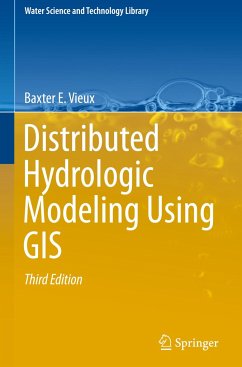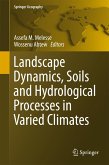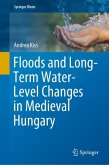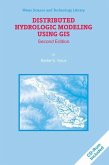This book presents a unified approach for modeling hydrologic processes distributed in space and time using geographic information systems (GIS). This Third Edition focuses on the principles of implementing a distributed model using geospatial data to simulate hydrologic processes in urban, rural and peri-urban watersheds. The author describes fully distributed representations of hydrologic processes, where physics is the basis for modeling, and geospatial data forms the cornerstone of parameter and process representation. A physics-based approach involves conservation laws that govern the movement of water, ranging from precipitation over a river basin to flow in a river.
Global geospatial data have become readily available in GIS format, and a modeling approach that can utilize this data for hydrology offers numerous possibilities. GIS data formats, spatial interpolation and resolution have important effects on the hydrologic simulation of the major hydrologic components of a watershed, and the book provides examples illustrating how to represent a watershed with spatially distributed data along with the many pitfalls inherent in such an undertaking. Since the First and Second Editions, software development and applications have created a richer set of examples, and a deeper understanding of how to perform distributed hydrologic analysis and prediction. This Third Edition describes the development of geospatial data for use in Vflo® physics-based distributed modeling.
Global geospatial data have become readily available in GIS format, and a modeling approach that can utilize this data for hydrology offers numerous possibilities. GIS data formats, spatial interpolation and resolution have important effects on the hydrologic simulation of the major hydrologic components of a watershed, and the book provides examples illustrating how to represent a watershed with spatially distributed data along with the many pitfalls inherent in such an undertaking. Since the First and Second Editions, software development and applications have created a richer set of examples, and a deeper understanding of how to perform distributed hydrologic analysis and prediction. This Third Edition describes the development of geospatial data for use in Vflo® physics-based distributed modeling.








